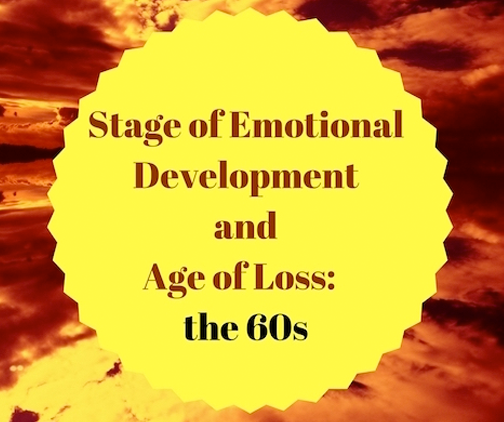When a 60’s woman loses her mother, we see this as a normal life transition. “After all, your mother is probably in her 80’s, isn’t it normal for her to die?” My response to this is, “Yes, but . . . “
The 60’s woman may have been the caretaker for her mother. Making life’s daily decisions, feeding, dressing, and caring for her. Almost like she did when she began raising her children. In fact, she was caring for her mother in the same manner as one would do in child-rearing. The mother may not have been rational and suffered from dementia. The mother may have become almost child-like in her communications and her needs. The demands on the 60’s woman are every-bit as exhausting as it was in the start of her parenting of children.
Society doesn’t get it. We do very little to accommodate the grief that a 60’s woman endures when her mother dies. Not only does she lose her mother, her history, and her identity, but also the loss of a child. The mother has become “the child.” Her grief is not only associated with the loss of her mother, but she also experiences the horrendous grief of loss of a child.
“People don’t realize it is like losing a child.”
The 60’s woman may be alone, widowed, or divorced. The care for her mother may have been consuming her life and filling in the empty spaces. One woman who had never married or had children shared,
“She has been my whole life. I have been consumed with taking care of her. What will I do now?”
“There is such a huge gap in my life. People don’t get it. They think just because she is old, loss should be easier. They say the stupidest things like, “You had her for so long or she is in a better place.”
Losing a mother at any age is difficult. We have talked about the ages of loss from 0 to the 60’s. The only reason we don’t talk about loss beyond the 60’s is that most women have lost their mother prior to the 60’s. Included below are the links to all of the ages.
Age of Loss and Stage of Emotional Development
I end this blog series with a poem I think we should hand others when we lose a mother.
Please Just Let Me Cry
Please, don’t ask me if I’m over it yet.
I’ll never be over it.
Please, don’t tell me she is in a better place.
I haven’t come to terms with why she had to suffer at all.
Please, don’t tell me you know how I feel,
Unless you have lost a mother.
Please, don’t ask me if I feel better.
Bereavement isn’t a condition that clears up.
Please, don’t tell me you had her for so many years.
What year would you choose for your mother to die?
Please, don’t tell me God never gives us more than we can handle.
Please, just say you are sorry.
Please, just let me talk about my mother.
Please, mention my mother’s name.
Please just let me cry.
— Author unknown


2 replies on “The 60’s: Losing a Mother and Losing a Child”
Both the blog and the poem are wonderful!
Thank you Penny. I pray it will bring some hope and understanding to others. They are not alone. We get it.